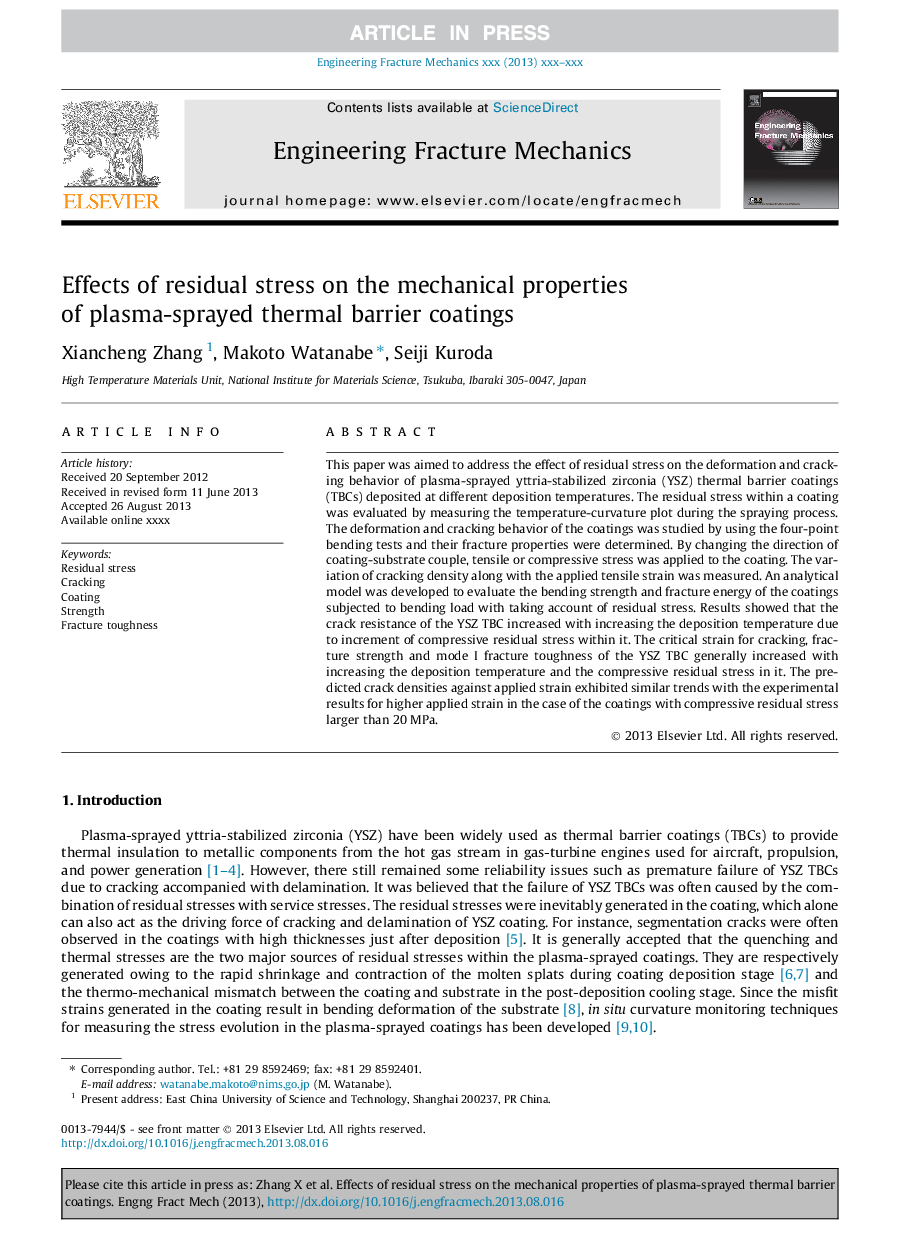| Article ID | Journal | Published Year | Pages | File Type |
|---|---|---|---|---|
| 7169983 | Engineering Fracture Mechanics | 2013 | 14 Pages |
Abstract
This paper was aimed to address the effect of residual stress on the deformation and cracking behavior of plasma-sprayed yttria-stabilized zirconia (YSZ) thermal barrier coatings (TBCs) deposited at different deposition temperatures. The residual stress within a coating was evaluated by measuring the temperature-curvature plot during the spraying process. The deformation and cracking behavior of the coatings was studied by using the four-point bending tests and their fracture properties were determined. By changing the direction of coating-substrate couple, tensile or compressive stress was applied to the coating. The variation of cracking density along with the applied tensile strain was measured. An analytical model was developed to evaluate the bending strength and fracture energy of the coatings subjected to bending load with taking account of residual stress. Results showed that the crack resistance of the YSZ TBC increased with increasing the deposition temperature due to increment of compressive residual stress within it. The critical strain for cracking, fracture strength and mode I fracture toughness of the YSZ TBC generally increased with increasing the deposition temperature and the compressive residual stress in it. The predicted crack densities against applied strain exhibited similar trends with the experimental results for higher applied strain in the case of the coatings with compressive residual stress larger than 20Â MPa.
Related Topics
Physical Sciences and Engineering
Engineering
Mechanical Engineering
Authors
Xiancheng Zhang, Makoto Watanabe, Seiji Kuroda,
